Full Guide to Thyme
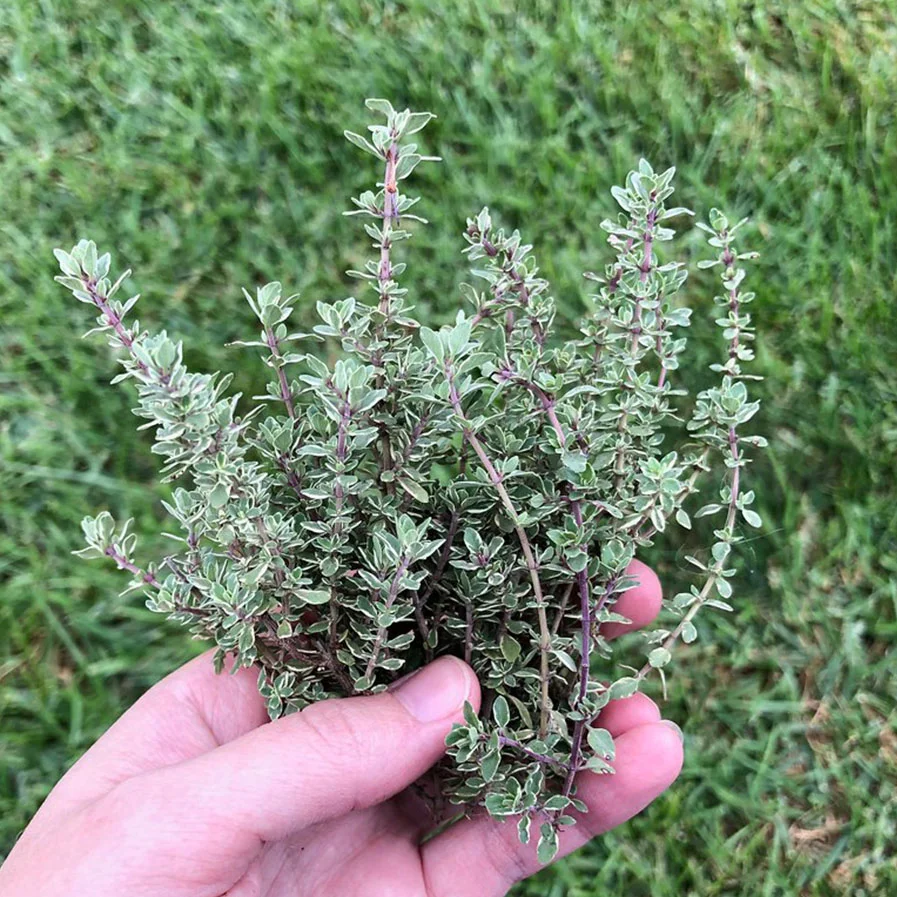
Quick links to save you time
What is Thyme?
Thyme is a multi-purpose aromatic herb. You will find it in many meals. It is a classic ingredient in Mediterranean cuisine.
Besides its culinary applications, people value thyme for its potential medicinal properties, such as combating bacterial and fungal infections, easing coughs, and offering antioxidant benefits.
What Does Thyme Look, Smell, and Taste Like?
Thyme is a petite perennial shrub that reaches heights between 4 and 12 inches (up to 30 cm) and features slim, sturdy branches that fan out. Its tiny, green-grey leaves are evergreen and complemented by vibrant violet blossoms. Thyme is indigenous to the Mediterranean, but it is so popular that many cuisines worldwide use it now.
Thyme is a versatile herb with many uses, including culinary, medicinal, and ornamental.
It has a unique balance of flavors.
The flavor is mild, balanced, and even a bit floral, like lavender or rosemary.
It is balanced, oscillating from earthy to minty, shifting from citrusy to savory, blending woodsy and floral hints.
While each variety has its unique taste profile—some present an earthy, minty zest with a citrus undertone—others might reveal a mild sweetness with floral overtones and a peppery kick.
Fresh Thyme has an intense herbal taste, highlighted by sharp grassy, woody, and floral undertones reminiscent of lavender and rosemary. The lemon thyme variety has a dominant citrus taste.
What are the Benefits and Therapeutic Uses of Thyme?

Credit Alberto Conde, Kitchen In The Med
12 Health Benefits of Thyme
- Fighting Acne: Thyme is effective due to its antimicrobial properties.
- It Lowers Blood Pressure: Using Thyme as a substitute for salt in cooking can help reduce high blood pressure.
- Alleviating Cough: Thyme is a traditional remedy to help cough; people believe it relieves smooth muscle spasms (such as coughing).
- Boosting Immunity: Thyme is packed with vitamins and other nutrients, including Vitamin C, Vitamin A, Vitamin B-6, iron, calcium, magnesium, and manganese, which all help to boost the immune system.
- Disinfecting and Repelling Pests: Thyme oil may help repel insects like mosquitoes and is often used as an active ingredient in bug repellents.
- Aromatherapy and mood Boosting: Regularly using Thyme or its oil might positively affect your feelings and spirit.
- Preventing Bacterial and Fungal Infections: Thyme contains chemicals that might help with bacterial and fungal infections.
- Gastrointestinal Health: Compounds extracted from thyme oil protect the stomach’s lining from ulcers and increase the protective gastric mucus layers in your stomach.
- Improving Circulation: Thyme’s high iron and other critical mineral content make it perfect for encouraging the synthesis of red blood cells, hence increasing blood circulation and oxygenation to the body’s vital organ systems.
- Protecting the Heart: The heart benefits from Thyme’s rich blend of antioxidants, minerals, and vitamins in various ways, but potassium and manganese are particularly significant.
- Calming the Nervous System: Thyme helps produce favorable effects on the neurological system due to a component called carvacrol. It has a naturally relaxing and supportive effect on the nervous system.
- Improving Cognition: A study reported that Thyme increased hormone levels, which can delay the onset of neurodegenerative and psychiatric illnesses such as Parkinson’s disease, Alzheimer’s disease, schizophrenia, and depression.

Credit Alberto Conde, Kitchen In The Med
5 Therapeutic uses of Thyme:
- Respiratory Issues: Thyme functions as an expectorant and anti-inflammatory and antibacterial agent. It may be a medication supplement to treat bronchitis, persistent asthma, congestion, colds, flu, blocked sinuses, sore throat, or seasonal allergies.
- Skin Disorders: Thyme’s anti-inflammatory and antimicrobial properties may also help with skin conditions. It can assist in eliminating bacterial infections and also in reducing inflammation.
- Sore Throat Remedy: Thyme has anti-inflammatory, antimicrobial, and antiseptic properties, so people use it to help heal cuts, bruises, and scrapes.
- Dental Health: Thymol, one of the chemicals in Thyme, is used with another chemical, chlorhexidine, as a dental varnish to prevent tooth decay.
- Hair Loss: People commonly use Thyme for patchy hair loss (alopecia areata)
While Thyme offers these advantages, much of the research comes from lab or animal studies, making the supporting scientific evidence relatively thin. You shouldn’t use Thyme as a substitute for medical care and treatment. If you’re curious about the benefits of Thyme, consider discussing it with a healthcare expert.
Additionally, you can consult the sources I used at the bottom of this article.
Thyme Precautions and Contraindications

Credit Alberto Conde, Kitchen In The Med
Precautions
- Allergic Reactions: Some individuals could have allergic reactions to Thyme, including skin irritation, dizziness, and stomach upset.
- Pregnancy and Breastfeeding: Though Thyme frequently appears in meals, the safety of using it in significant quantities during pregnancy or while breastfeeding remains uncertain due to limited reliable data. It’s best to stick to food amounts.
- Hormone-Sensitive Conditions: Thyme might act like estrogen in the body. If you have any condition that might worsen by exposure to estrogen, you should avoid using Thyme. These conditions include breast cancer, uterine cancer, ovarian cancer, endometriosis, uterine fibroids, and others.
- Surgery: Thyme might slow blood clotting, heightening the chances of excessive bleeding during and after surgery. It’s best to stop using Thyme at least two weeks before a scheduled surgery.
- Gastrointestinal Disorders: If you have gastrointestinal issues like stomach ulcers, dyspepsia, stomach pain, gastritis, or an irritable colon, you should use Thyme only after consulting a medical professional.
- Constipation: Thyme contains tannins, which can have an astringent action and aggravate constipation.
- Heart Failure: Thyme essential oil is not recommended for heart failure because it can cause bradycardia (decrease in heart rate).
- Children: While Thyme is likely safe when consumed in regular food amounts, the safety of thyme oil for children, whether applied topically or ingested, remains uncertain due to limited information.
Contraindications
- Hypersensitivity: People with hypersensitivity should not consume the plant or its essential oil.
- Gastro-duodenal Ulcer and Enterocolitis: Because thyme essential oil has irritating properties, it’s not recommended for those with gastro-duodenal ulcers or enterocolitis.
- Excessive Consumption: Excessive consumption of Thyme may irritate the mucous membranes, causing abdominal cramps, headaches, and dizziness. Overconsumption of thyme oil may lead to an abnormal drop in blood pressure.
What Part of the Thyme Herb is Edible?
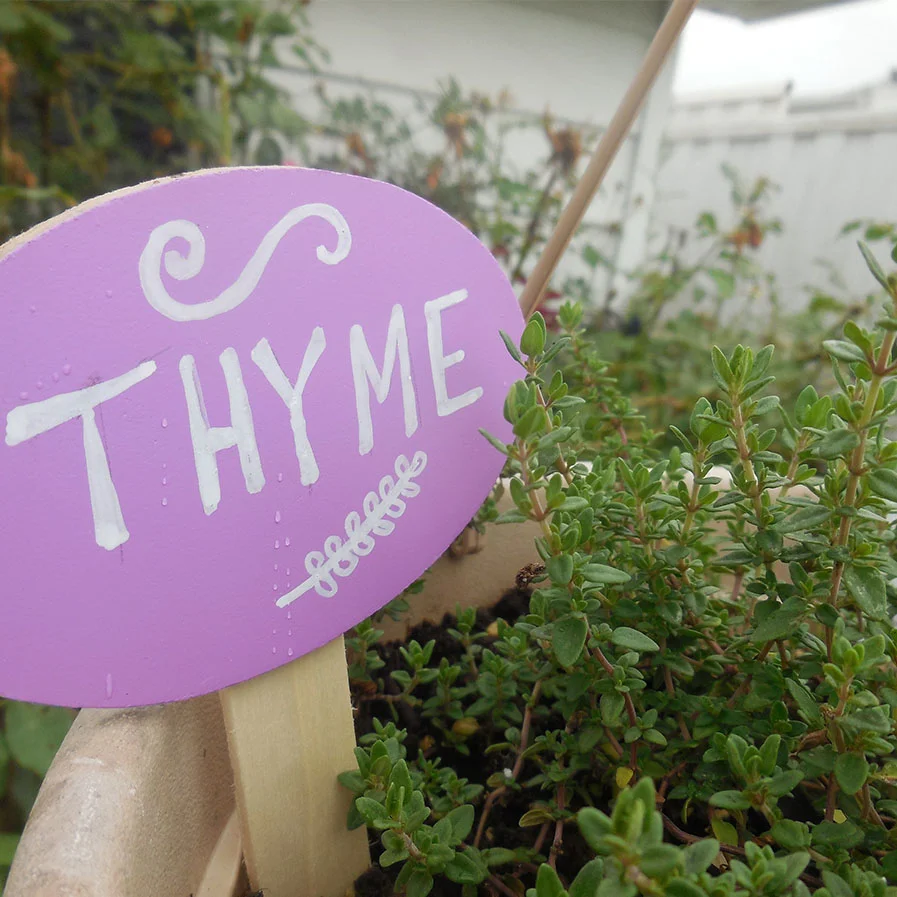
The parts of the thyme plant that are edible include the leaves, young and tender stems, and flowers. The leaves are the most commonly used part of the plant in cooking due to their aromatic and woodsy flavor that pairs well with various dishes, including meat, fish, and many other common herbs.
Young and succulent thyme stems are also edible and are good to use along with the leaves for extra flavor in your food. However, as the stems age, they become woody and lose flavor, making them less desirable for culinary use.
If a recipe specifies a “sprig” of Thyme, you should leave the leaves and stem connected.
When flavoring a stock or stew with Thyme, you can include the stems if you plan to strain or remove them later.
While less flavorful than the leaves and stems, Thyme flowers are also edible, and people use them to garnish dishes or float in a cup of thyme tea.
10 different types of Thyme and their uses
There are more than 300 thyme varieties. Here is a sample of ten types and their uses:
Common Thyme (Thymus vulgaris): This is the most widely used culinary Thyme due to its strong aroma and flavor. It is often added to various dishes, stews, and soups and used to make essential oils.
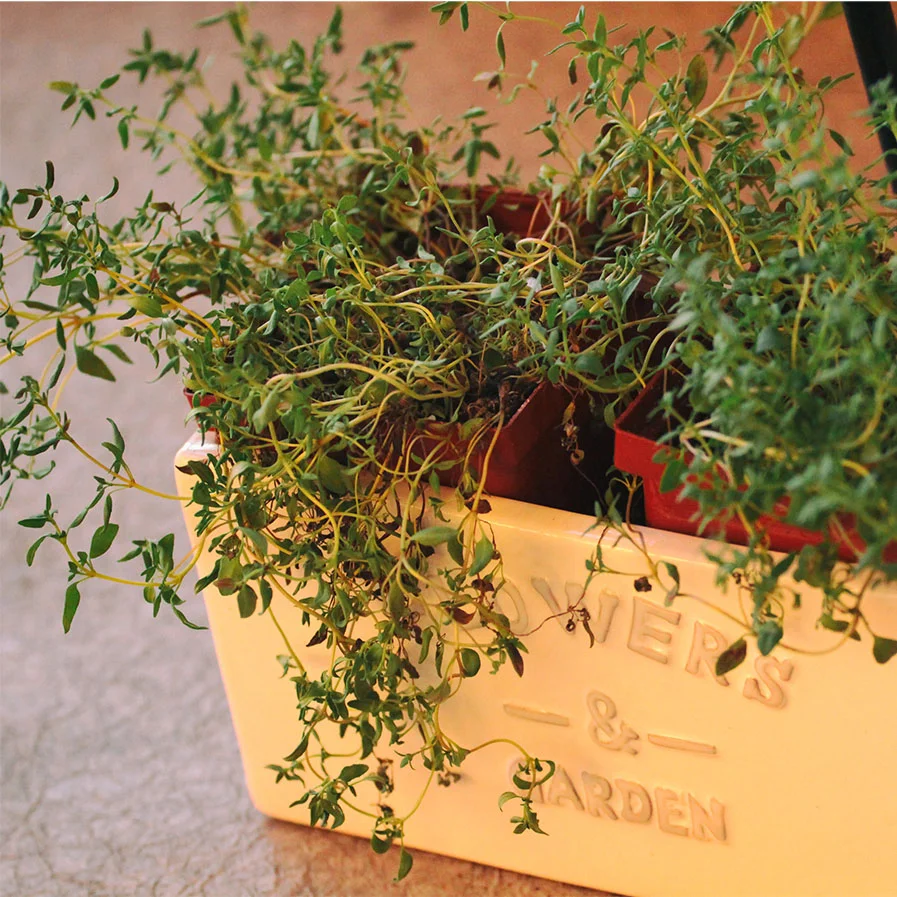
Lemon Thyme: This variety looks very similar to English thyme but has a luscious lemon-fresh scent and taste. It is present in fish or chicken marinades, smoothies, and any recipe for lemon juice, zest, or flavor.
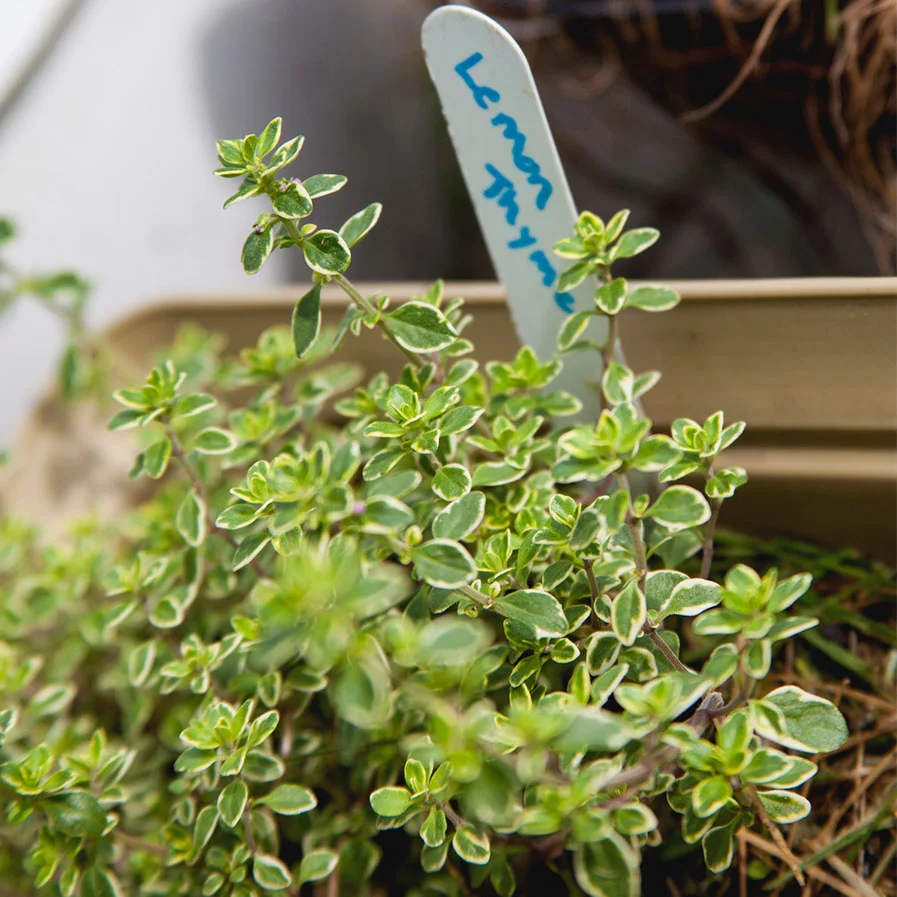
Woolly Thyme: This variety is a ground cover thyme with tiny grayish leaves and small pink flowers. While edible, it is not common in cooking due to its mild fragrance. Instead, you will often see it as a ground cover in gardens.
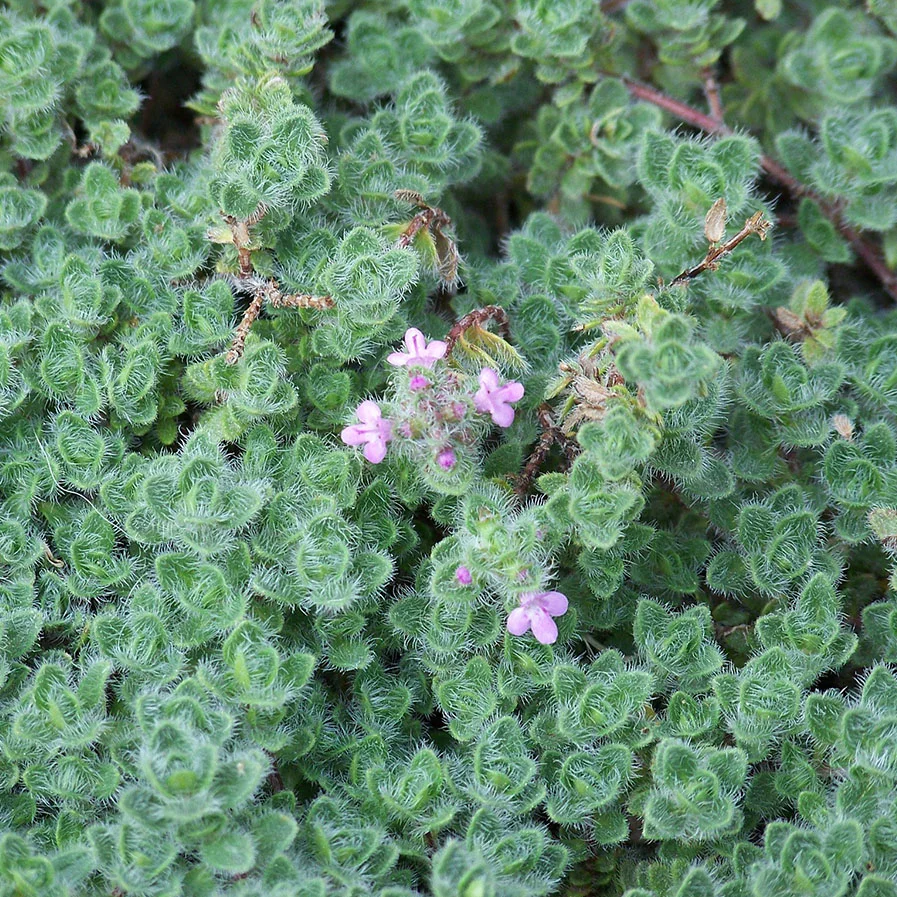
Elfin Thyme: Elfin, one of the tiniest and slowest-growing thymes, boasts petite green leaves and lavender blossoms. Its best use is as a ground cover between stepping stones.
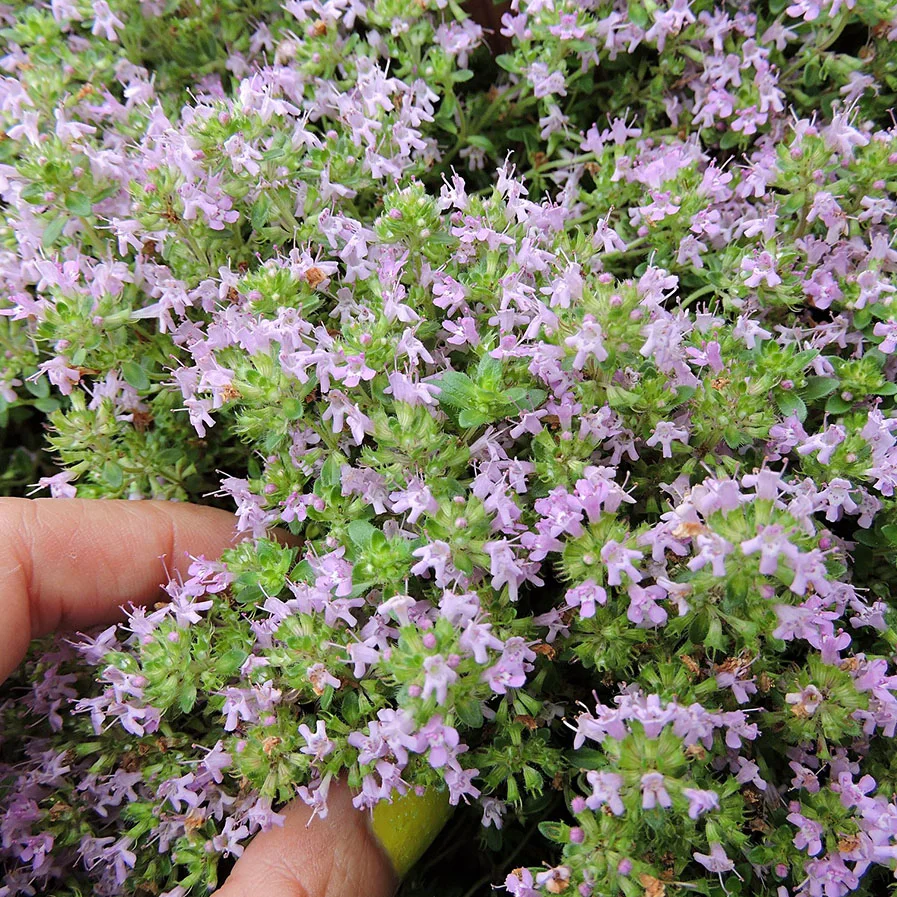
Juniper Thyme: This type serves as a ground cover and a culinary herb. Its robust flavor and aroma make it an authentic recipe substitute for caraway.
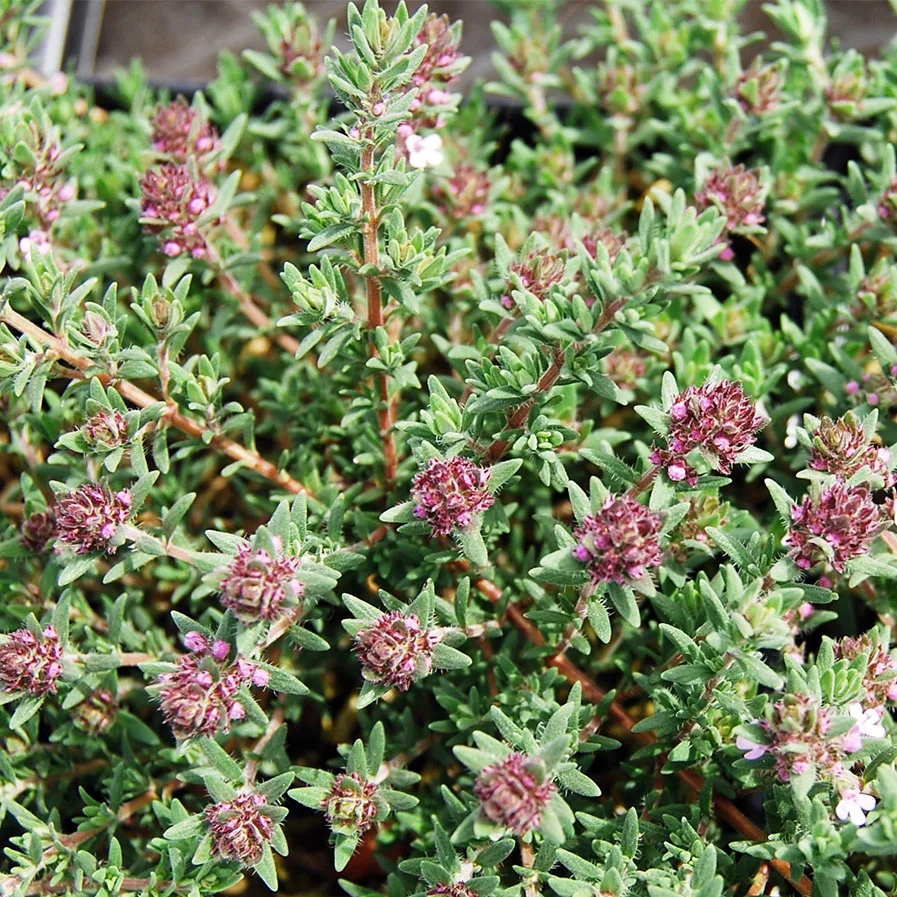
French Thyme: This variety can work well in everything from salads to soups and is worth experimenting with to find how it compares to other thyme varieties.
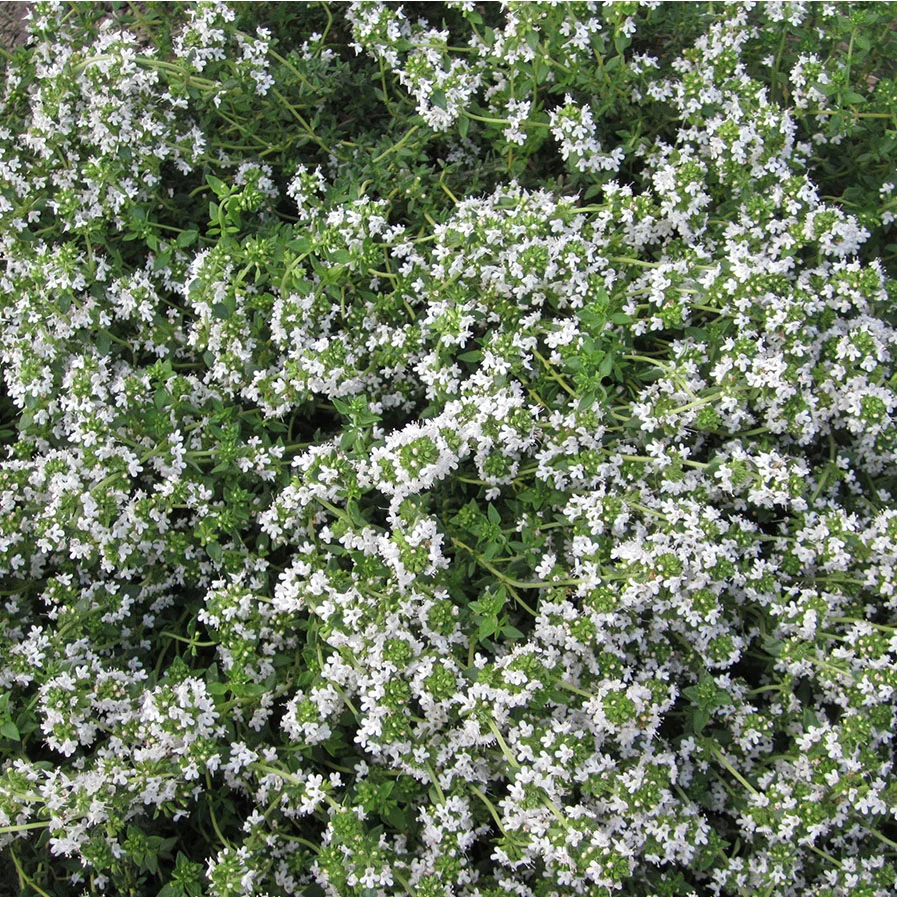
German Thyme: Another nationality-themed version, German Thyme, like other types, is used in various dishes.

Creeping Thyme: This variety is a ground-cover thyme that spreads quickly and is often used to decorate rock gardens and gaps in patios.

Silver Queen Thyme: This variety has silvery foliage and a lemony fragrance. It is famous for its mild, typical thyme flavor.
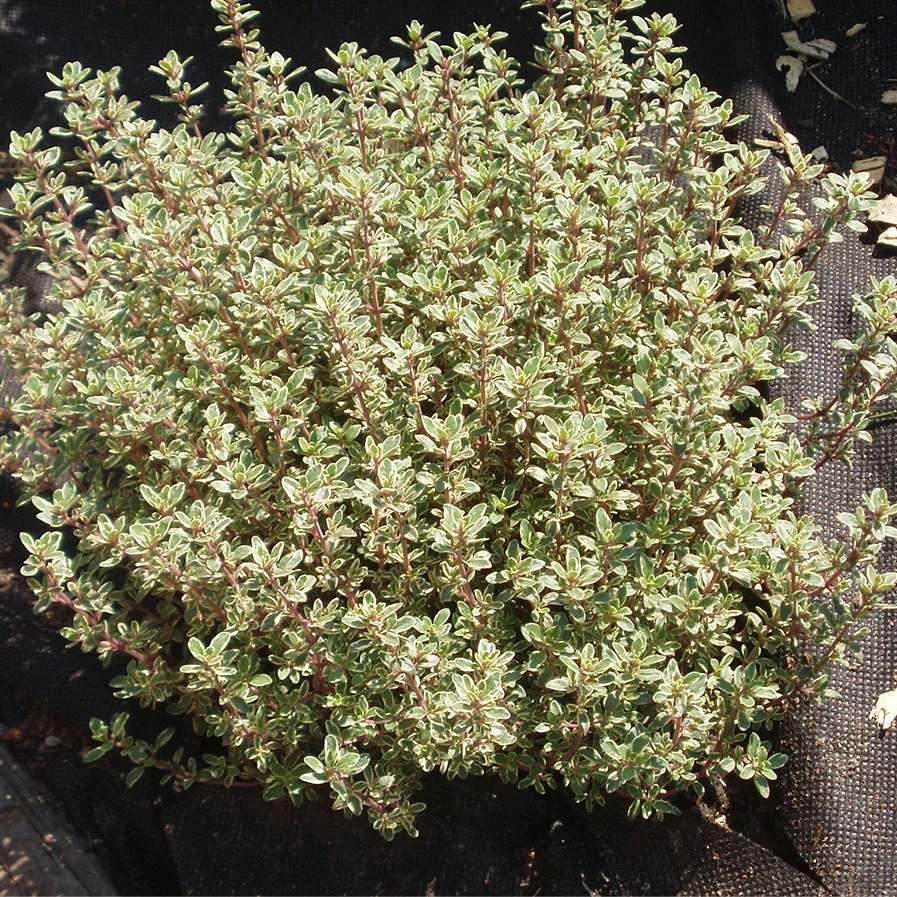
Caraway Thyme: This variety is known for its intense flavor and scent, which can be a substitute for caraway in recipes.
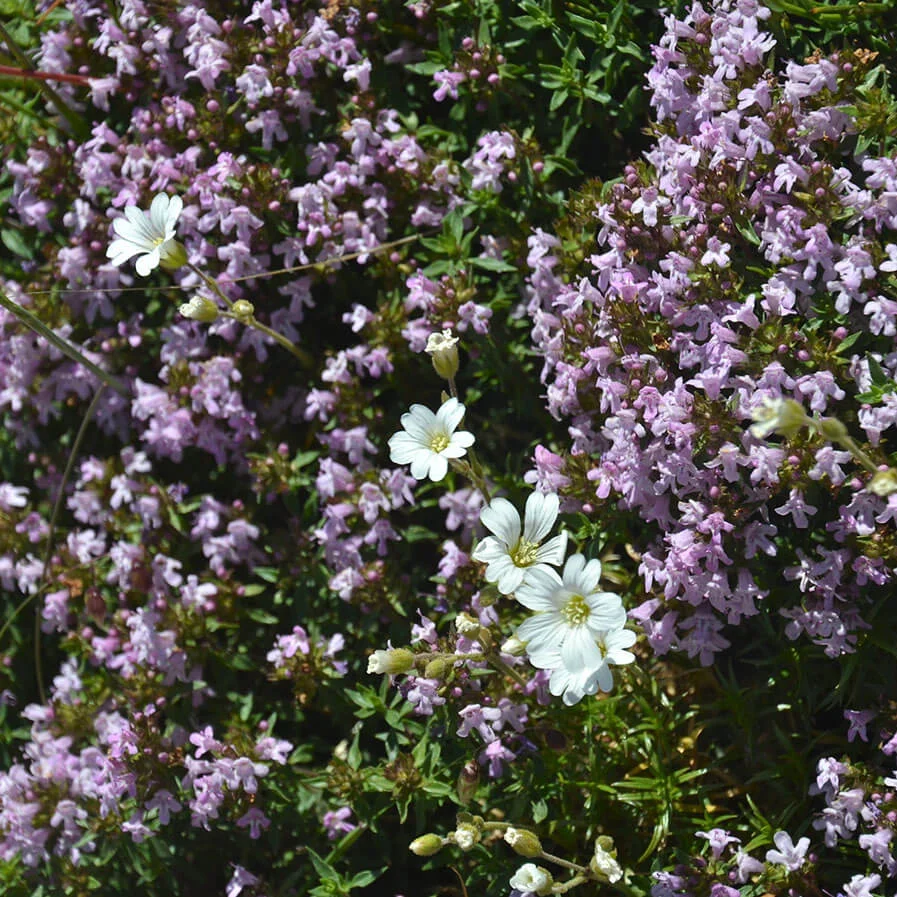
What does Thyme Taste Like?
Thyme has a complex and distinct flavor profile. It’s aromatic and slightly spicy, hinting of mint, clove, and earthiness. Some varieties also possess a subtle lemony undertone. The taste is a blend of herbaceous, woodsy, and peppery notes.
5 Main Culinary Uses of the Thyme Herb:
Thyme is fresh and dried; each may offer a slightly different flavor profile. It’s always a good idea to experiment with both formats to find the one that best suits your culinary needs.
Seasoning for Meats: Thyme pairs well with meats of all kinds, including chicken, pork, lamb, and beef. It can work in marinades to give the meat a savory taste once cooked. You can incorporate fresh leaves into marinades or toss the entire sprig into a dish while roasting meat.
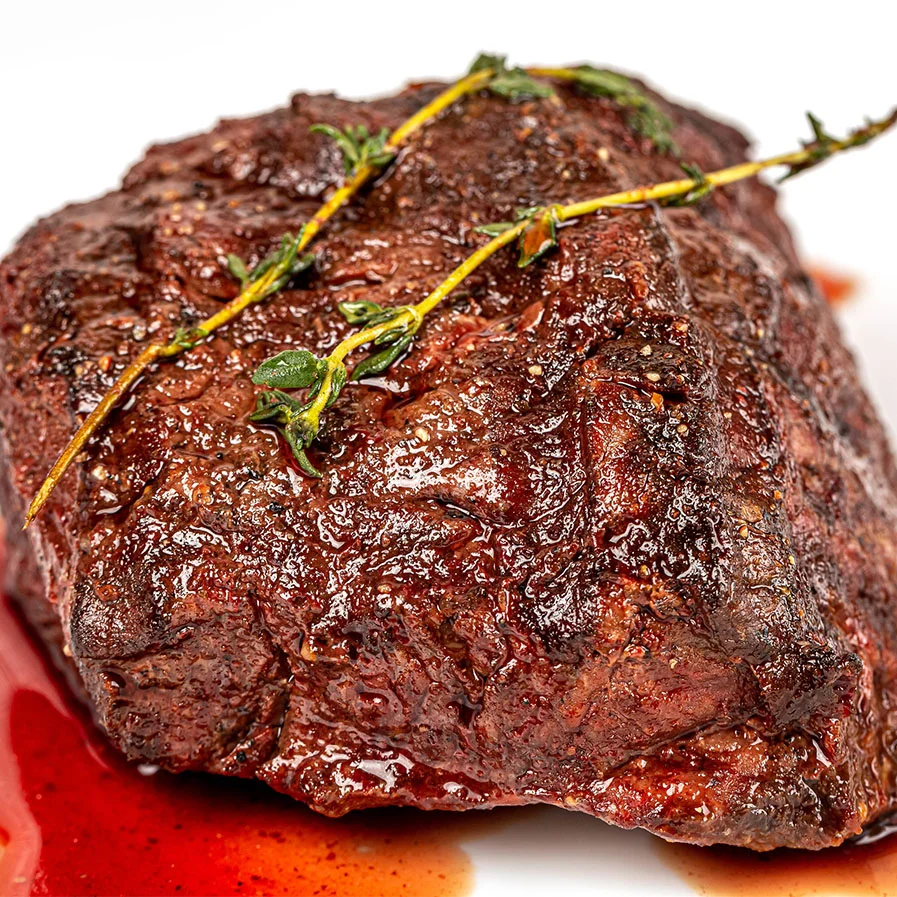
Ingredient in Soups and Stews: Thyme frequently enhances the taste and richness of soups and stews. You can introduce it or combine it with other herbs like rosemary, sage, and marjoram in a blend or bouquet garni.
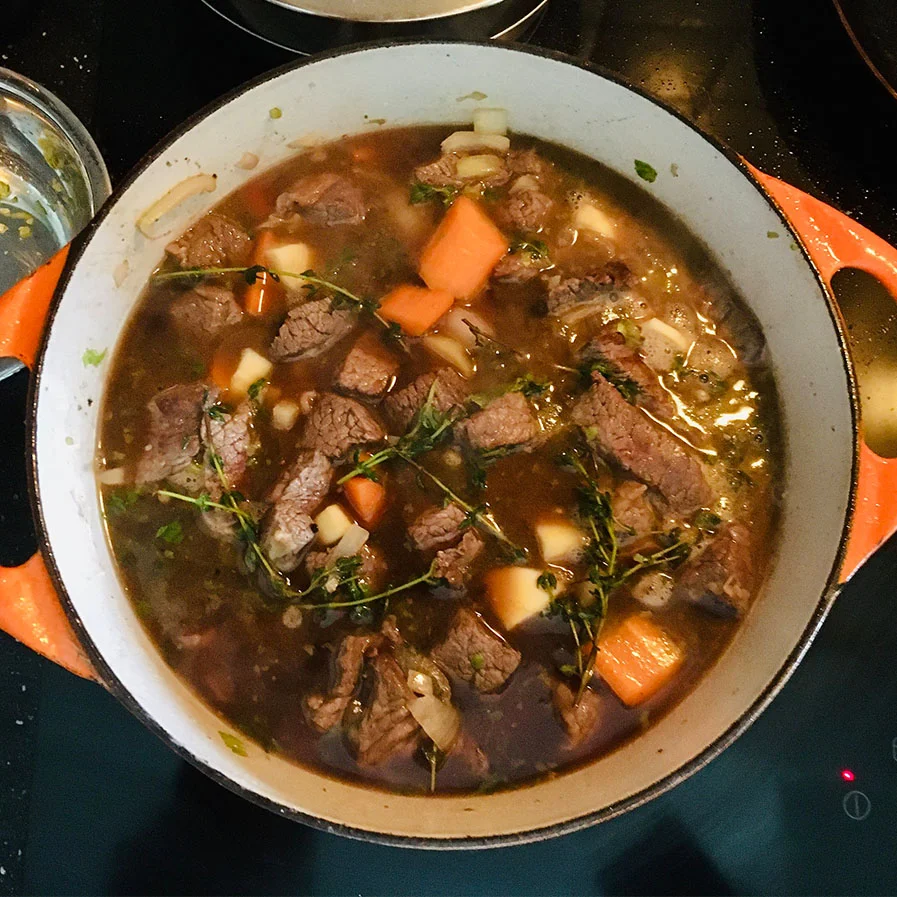
Flavoring for Vegetables: It is common to use Thyme to season vegetables when roasting or sautéing them. A simple sprinkling of Thyme can elevate the flavor of the vegetables.
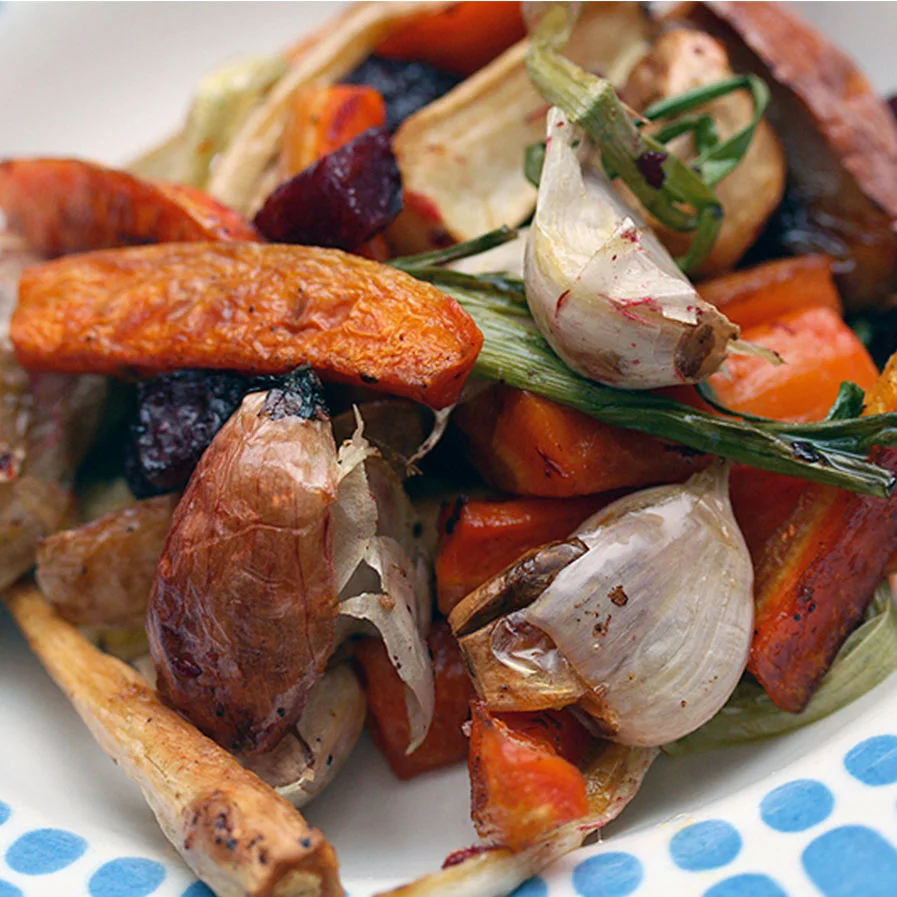
Addition to Pasta and Sauces: Thyme is good in pasta dishes and sauces. When making sauces, adding the herb last and immediately taking it off the heat to retain the flavor and aroma is recommended.
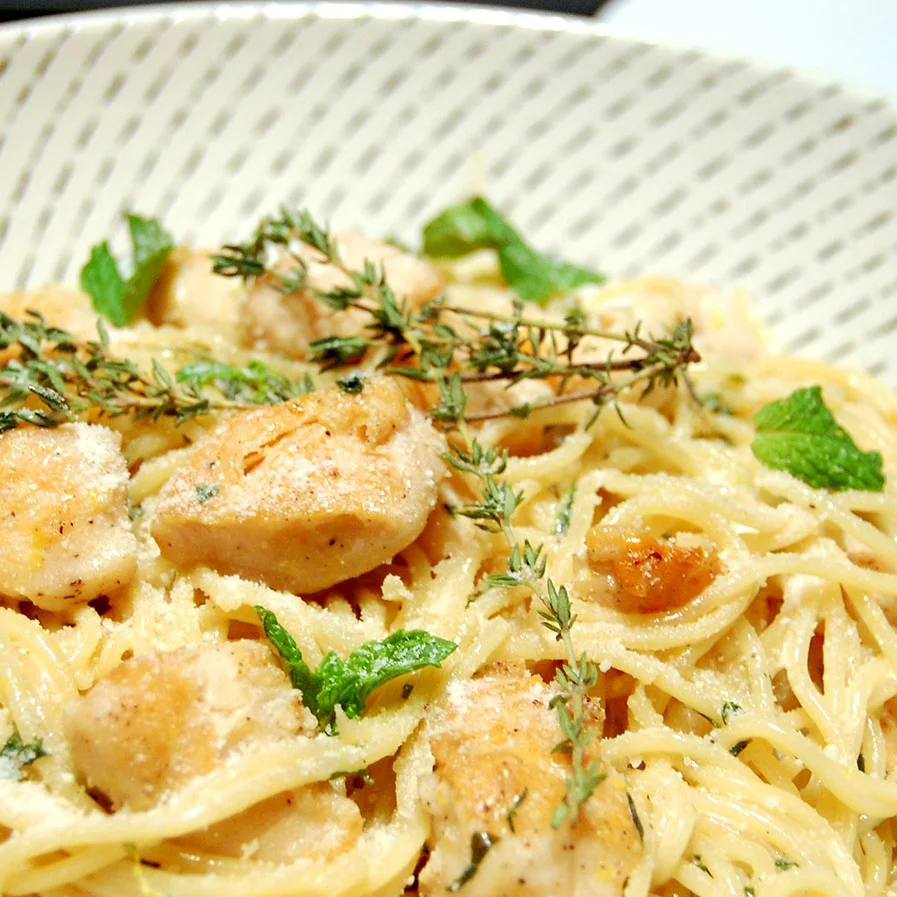
Ingredient in Baking and Desserts: Thyme can work in savory baking, such as doughs and batters. It is also suited for desserts, like soufflés and custards, or to decorate desserts due to its slightly lemony taste. It also works in herby desserts like lemon-thyme sorbet.

Thyme compared with 10 other seasoning herbs:

- Thyme or Oregano: Oregano has a slightly more potent and intense flavor than Thyme. Still, both herbs are members of the mint family and can be used interchangeably in many recipes. Oregano is common in Italian, Greek, and other Mediterranean cuisines, while Thyme is present in French, Spanish, and other Mediterranean dishes.
- Thyme or Parsley: Parsley has a milder flavor than Thyme and is often used as a garnish or in salads. Thyme has a more robust, earthy taste and is common in various dishes, including soups, stews, and meat.
- Thyme or Rosemary: Rosemary has a more powerful, savory flavor than Thyme and is common in meat dishes, particularly lamb. Thyme has a more subtle flavor and is popular in many dishes, including soups, stews, and marinades.
- Thyme or Bay Leaves: Bay leaves have a more subtle flavor than Thyme and are common in soups, stews, and sauces. Thyme has a more robust, earthy flavor, and people use it in a broader variety of dishes, including meat and roasted vegetables.
- Thyme or Dill: Dill has a more delicate flavor than Thyme, which people use in pickling and seafood dishes. Thyme has a more robust, earthy flavor, and people use it generously, including soups, stews, and meat dishes.
- Thyme or Cilantro: Cilantro has a more citrusy flavor than Thyme and is a favorite in Mexican and Asian cuisine. Thyme has a more subtle, earthy taste; people generally use it in many dishes.
- Thyme or Mint: Mint has a more refreshing, cool flavor than Thyme and is a favorite in desserts and drinks. Thyme has a more subtle, earthy taste, and people generally use it in various dishes, including soups, stews, and meat.
- Thyme or Basil: Basil has a more sweet and spicy flavor than Thyme and is common in Italian and Mediterranean cuisine. Thyme is more subtle, earthy, and a favorite of Mediterranean and other cuisines.
- Thyme or Tarragon: Tarragon has a more anise-like flavor than Thyme and is typical in French cuisine. Thyme is more subtle, earthy, and a favorite of Mediterranean and other cuisines.
- Thyme or Chives: Chives have a more onion-like flavor than Thyme and are often used as a garnish or in salads. Thyme has a more substantial, earthy taste and is common in various dishes, including soups, stews, and meat.
Thyme as an Insect Repellent
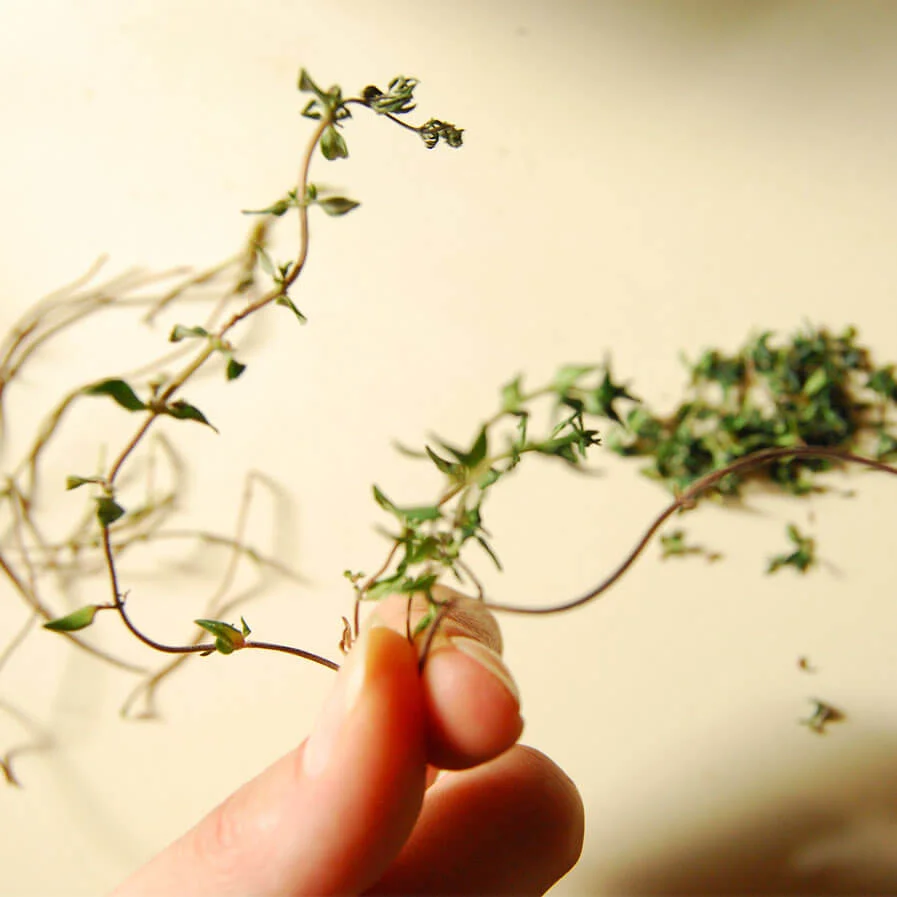
Thyme is not as good as other herb insect repellents such as lavender, mint, or lemon-thyme. Nevertheless, it helps repel mosquitoes, maggots, hornworms, earworms, and whiteflies. You can use it in various ways like:
- Planting in the Garden: You can plant it to repel insects. It adapts well to dry and shallow soil and grows easily in a garden.
- Bruising the Leaves: To release the chemical that repels insects, bruise the leaves. Once the pests get a smell of Thyme, they will fly or crawl away from the garden or property.
- Using Essential Oil: Thyme essential oil is a natural insect repellent. In a study involving animals, topical application of Thyme essential oil on mice resulted in a 91 percent protection rate from mosquitoes.
What is Thyme Essential Oil Good for?
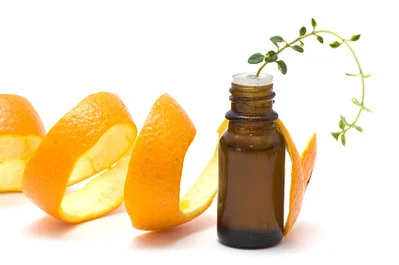
Thyme essential oil has a variety of uses and benefits, including antibacterial and antifungal properties, anti-inflammatory properties, respiratory health benefits, immune system support, and hormone balancing. However, it’s important to use caution when using essential oils and to follow proper dilution guidelines since they can cause skin irritation or other adverse reactions.
- Antibacterial and Antifungal Properties: Thyme oil has antibacterial and antifungal properties that can help kill germs and infections in the mouth, protect the teeth from plaque and decay, and prevent fungal infections.
- Anti-Inflammatory Properties: Thyme oil, rich in thymol, possesses anti-inflammatory properties that can aid in diminishing inflammation within the body.
- Respiratory Health: Thyme oil can help alleviate respiratory issues such as coughs, bronchitis, and congestion. It can also help clear mucus and phlegm deposits from the nasal passage and relieve chest congestion.
- Immune System Support: Thyme oil can help boost the immune system due to its antioxidant and bioactive components. It can also help combat microbes and shield the body against various infections.
- Hormone Balancing: Thyme oil can help balance hormone levels, particularly in women with menstrual and menopausal symptoms.
What is Thyme Essential Oil Used for?
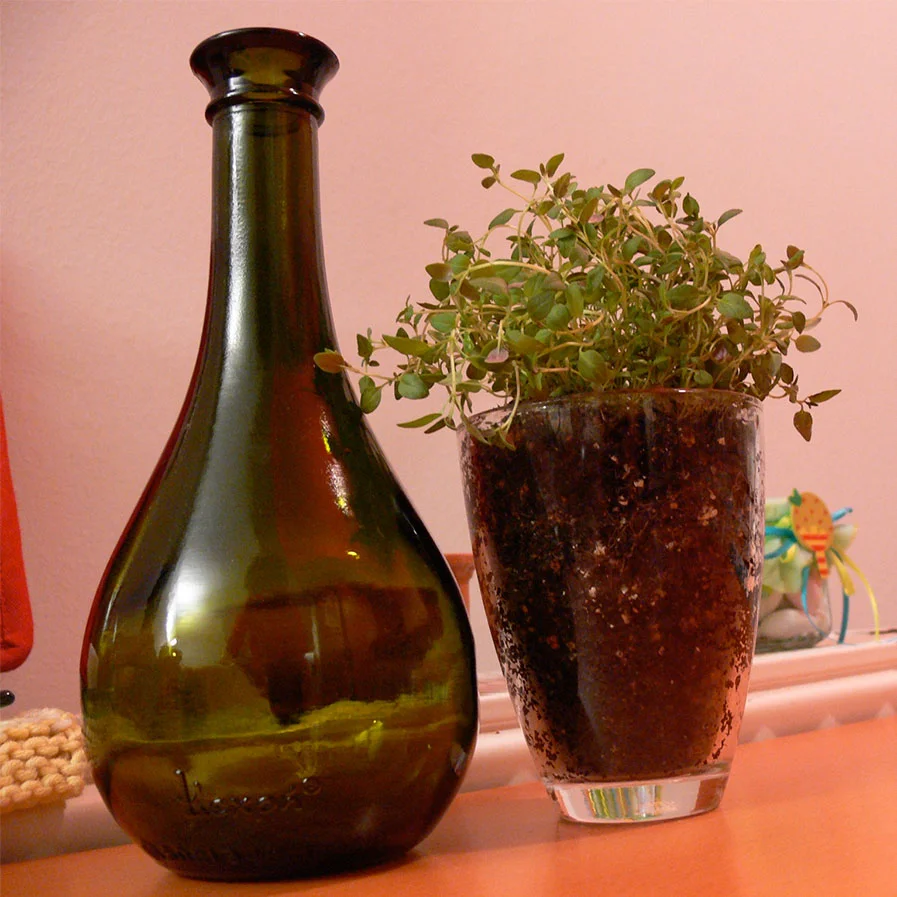
Thyme essential oil is best mixed with carrier oil before use and should not be undiluted on the skin or scalp. Additionally, while several studies support thyme essential oil’s ability to provide the following benefits and those listed above, more research is needed to understand its effects fully.
- Skin Care: You can incorporate thyme essential oil into skincare products to address acne, pimples, rashes, cuts, and scars. It also guards against oxidative sun harm and addresses aging indicators like wrinkles and fine lines.
- Aromatherapy: Thyme essential oil can be used in aromatherapy to reap the benefits of its mood-boosting properties. It can also reduce anxiety levels and promote relaxation.
- Natural Insect Repellent: The potent aroma of thyme essential oil can repel insects like mosquitoes, earworms, maggots, hornworms, and whiteflies.
- Food Preservative: Thyme oil is common in foods due to its antibacterial properties. It can help reduce or eliminate foodborne bacteria.
- Flavoring Agent: Thyme oil is a flavoring agent in foods, cosmetics, and toiletries due to its distinctive taste and aroma
Is Thyme Essential Oil Used for Cooking?
People indeed use it for cooking to add a unique flavor to various dishes. However, use it cautiously and in moderation, and always mix it with a carrier oil before use.

Credit Alberto Conde, Kitchen In The Med
The 10 Most Frequently Asked Questions About Thyme
What is thyme?
Thyme is an aromatic herb popular in cooking that has various medicinal properties.
What are the health benefits of Thyme?
Thyme has antibacterial, antifungal, anti-inflammatory, and immune-boosting properties. It can also help with respiratory issues, hormone balancing, and skin care.
What are the culinary uses of thyme?
Thyme is often used to season meats, vegetables, soups, and stews. It is also good in marinades and dressings.
What part of the thyme herb is edible?
The leaves and flowers of the herb are edible and common in cooking.
What are the precautions and contraindications of Thyme?
Thyme should be used in moderation and with caution, especially for pregnant or breastfeeding women. It can also interact with certain medications.
What are the different types of Thyme?
There are over 400 types of Thyme, including common Thyme, lemon thyme, and creeping Thyme.
What is thyme essential oil used for?
Thyme essential oil is present in aromatherapy, skin care, respiratory health, immune system support, hormone balancing, food preservation, and as a natural insect repellent.
Is thyme essential oil used for cooking?
Yes, but use it with caution and in moderation.
How is thyme essential oil used?
Thyme essential oil is common in aromatherapy, skin care, respiratory health, immune system support, hormone balancing, food preservation, and as a natural insect repellent.
What is the effectiveness of thyme essential oil?
Thyme essential oil is effective in various ways, including its antibacterial, antifungal, anti-inflammatory, and immune-boosting properties. However, more research is needed to understand its effects fully.